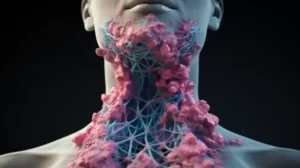Caffeinated drinks often get a bad rap, but research has shown that tea and coffee could be much better for your health than you might think. These beverages are not only widely consumed for their pick-me-up qualities, but they can also provide substantial benefits for your brain, heart, and muscles.
Mental Protection from Caffeine
Caffeine, found in coffee, tea, and cola, is known for its ability to boost alertness. However, it has also been discovered that this stimulant can slow down the type of mental decline characteristic of Alzheimer’s disease.
Researchers at the University of South Florida (USF) studied adults in the initial stages of memory deterioration and found that individuals with higher levels of caffeine in their blood declined at a slower rate or did not decline at all. On the other hand, those with less caffeine in their system seemed to succumb to Alzheimer’s at a quicker rate.
Dr. Chuanhai Cao, a neuroscientist at USF, explained that moderate coffee consumption – equivalent to about three cups a day – could mean that older adults with mild memory impairment don’t progress to Alzheimer’s or that the progression is significantly delayed.
Caffeine Boosts Muscle Health
Maintaining muscle tone as you age is essential for overall health and to reduce the risk of falling and breaking bones. Surprisingly, coffee and tea may be your secret weapons to ensure better muscle function during your senior years.
Researchers at Coventry University in England discovered caffeine’s potential performance-enhancing benefits in maintaining muscle tone, even in older individuals. Although reduced compared to younger people, caffeine could still provide essential benefits. Improved muscle tone keeps your body physically active, preserving health and functional capacity that’s crucial in the aging population.
Life Expectancy and Coffee Consumption
Coffee drinkers may have a longer life span than their non-coffee drinking counterparts. A research study involving more than 400,000 members of AARP aged 50 to 71 years analyzed the beverage habits of participants over 12 years. It found that fewer regular coffee drinkers died during the study period compared to those who refrained from drinking coffee.
The study conducted at the National Cancer Institute discovered that coffee drinkers had a lower risk of several illnesses. They experienced fewer deaths due to strokes, respiratory disease, heart disease, diabetes, infections, injuries, and accidents.
Researcher Neal Freedman claimed that coffee contains so many phytochemicals that it is challenging to determine the healthiest elements. “It’s estimated there are 1,000 or more compounds in coffee,” he said. “All of these could affect health in different ways. It might be due to one of the many compounds in coffee, or a number of them working together.”
Tea’s Effects on Prostate Cancer Cells
The benefits of tea extend beyond caffeine. Studies have shown that natural chemicals like polyphenols found in tea can slow down the growth of prostate cancer cells. UCLA researchers discovered that men who frequently drink tea had higher levels of protective polyphenols in their blood and prostate tissue. In tea-drinking men, they observed that the proliferation of prostate cancer cells was significantly slower in comparison to those who didn’t consume tea.
It’s fair to say that people didn’t start drinking caffeinated beverages for their health benefits. The initial goal was to jump-start morning cognition or recharge midday focus. However, it’s reassuring to know that caffeine can actually help maintain and improve mental and physical health in various ways.



